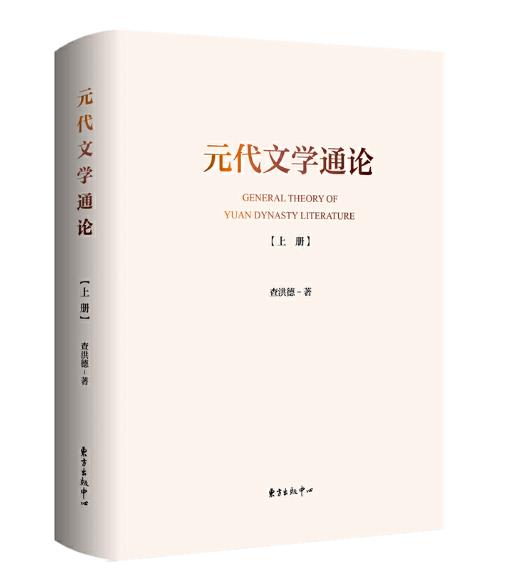Discovering unique value of Yuan literature

General Theory of Yuan Dynasty Literature
The Yuan Dynasty (1271–1368) ruled over a vast and strong nation. Despite sharp class contradictions and oppression of certain ethnic groups at that time, the mixed habitation of Han and Mongols was conducive to cultural integration. Increasingly diverse thought sprang up and developed in the fields of literature and art.
In General Theory of Yuan Dynasty Literature, Zha Hongde, a professor from the School of Literature at Nankai University, discusses the evolution of Yuan literature in stages, examines various genres and schools within Yuan literature, and objectively comments on the creative features and achievements of writers at that time.
Ethnic minority literature is an important part of Yuan Dynasty literature as a whole. Some studies strive to unearth the uniqueness of Yuan ethnic minority writers, ignoring or even dismantling the unity of the Yuan literary world. The author argues that some Mongols and Semu (the name of a caste established by the Yuan Dynasty, which refers to people from Central and West Asia) became men of letters during the Yuan Dynasty. The reasons for this were their taking root in the Central Plains culture, forging extensive contacts with multi-ethnic scholars and participating together in cultural and literary activities. They became deeply integrated with each other as a result of these activities.
The author points out that literature changed during the Yuan Dynasty. As such, we should adjust our traditional standards of evaluation for Yuan literature. For example, it was impossible for literati in the Yuan Dynasty to gain social and political status by writing excellent poems as it was in the Tang Dynasty (618–907), or to seek fame through poems as in the Song Dynasty (960–1279). Hence, there was no need to sing praise in poems to the rulers and to the era, nor to deliberately show off talent. In this sense, compared with previous poets who tried to seek social status and fame through the writing of poems, the biggest difference in Yuan poetry was its focus on poets themselves.
The author proposes many new ideas in the book. For instance, the author argues that “literature advocated by non-governmental forces” is the most important feature of Yuan literature. Many characteristics of Yuan literature are related to this feature. Specifically, most leading literary figures did not hold official positions, and most literary activities were spontaneously organized by the common people. Such a diverse and competitive literary atmosphere in the Yuan Dynasty cultivated literati talent.
This article was edited and translated from Guangming Daily.
edited by YANG LANLAN

 PRINT
PRINT CLOSE
CLOSE